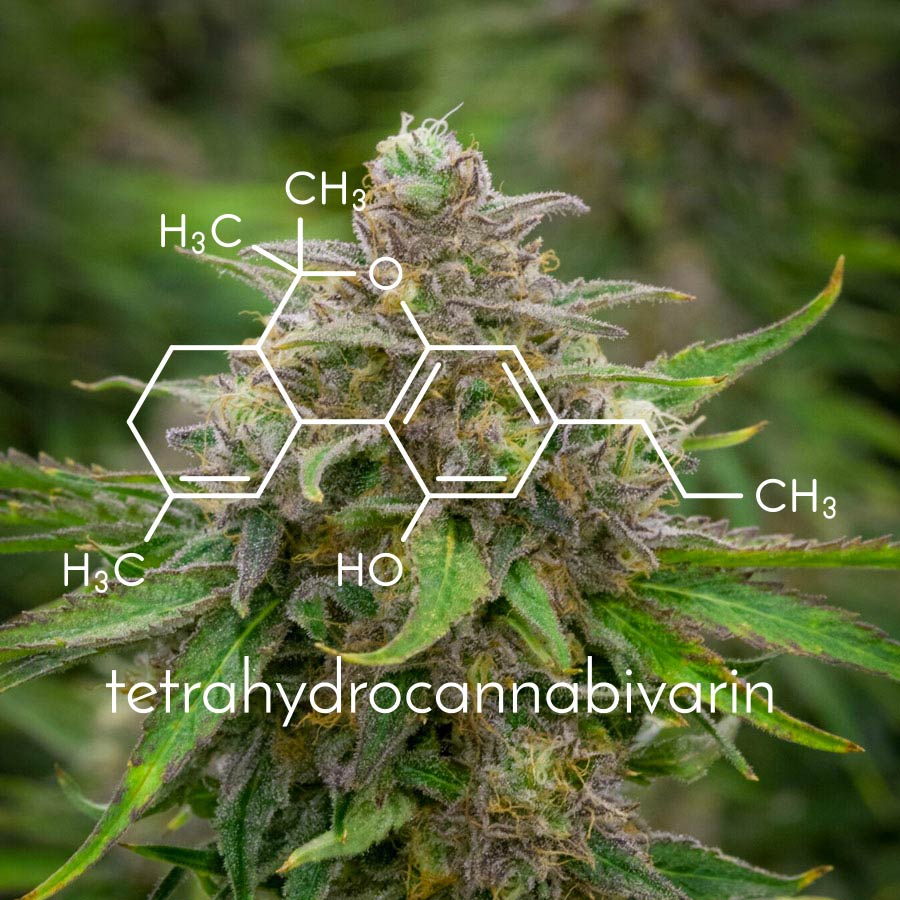Cannabis has a lengthy list of terms and phrases, and you can forget 90% of them. But you should add THCV to your weed vocabulary.
Cannabis is growing increasingly popular. But there’s a barrier to more popularity, and its not Federal legalization, its confusion.
If you’re a seasoned consumer, you probably have a cursory understanding of cannabis terminology. But fresh customers often find our industry’s (surprisingly) complicated glossary a barrier to entry. It’s not keeping customers from visiting Denver dispensaries, but it is keeping some people from getting the most from cannabis.
There are terms every Colorado cannabis consumer should know, from the obvious (THC and CBD) to the slightly-less obvious (cannabinoid, endocannabinoid, terpenes) to the esoteric (THCV).
THCV, or tetrahydrocannabivarin, is a lesser-known term, but it’s one you should know.

What is THCV, and, more importantly, what does it mean for you?
Let’s cover the basics first. THC and CBD are cannabinoids; cannabinoids are chemical compounds responsible for our favorite plant’s effects. THC gets you high, CBD helps relieve symptoms like pain, nausea, anxiety, and inflammation.
THCV is also a cannabis compound. And, like THC and CBD, THCV has a unique set of beneficial characteristics.
THC and THCV are molecularly similar, but their effects are different.
THCV is psychoactive – technically, it should get you high, but researchers aren’t entirely sure it does.
“THC is, of course, famous for its psychoactive properties. CBD, by contrast, is known for having next to none. As science dives deeper into the psychological effects of lesser-known compounds in cannabis, there’s always that voice calling from the sideline: “Yeah, but does it get you high?”
When it comes to THCV, the answer is…probably. We’re not 100% sure yet. This is science, after all. It’s complicated.” —Leafly
We know this is confusing.
Many Internet outlets claim THCV’s effects are more intense than THC. Some go so far as to call the effects “psychedelic.” The jury is still out.
Most of our THCV knowledge comes from studies conducted in the early 1970s. Researchers found that THCV is a chameleon that exhibits little to no psychoactive properties in low dosages. In higher quantities, it displays intense psychoactive effects. A THCV buzz tends to arrive quickly and intensely and dissipates just as fast.
Beyond its dynamic psychoactive properties, THCV has numerous benefits to Colorado dispensary customers.
What are THCV Benefits?
Studies indicate that THCV can reduce PTSD-associated anxiety. The research also suggests that this lesser-known cannabinoid can improve motor functions, and reduce tremors in Alzheimer’s and Parkinson’s patients, and is an anti-convulsant for people with Epilepsy.
Perhaps more interesting, THCV won’t give you the munchies. In fact, it has the opposite effect. The cannabinoid mitigates hunger, making it a potential obesity treatment and helpful for consumers interested in weight-loss. The cannabinoid is also known to regulate blood sugar in type 2 diabetes patients.
Cannabis prohibition at the federal level inhibits scientist’s ability to conduct more in-depth THCV research. Still, as our overall understanding of the various cannabis compounds increases, we’re learning the complexities of this historically misunderstood plant.